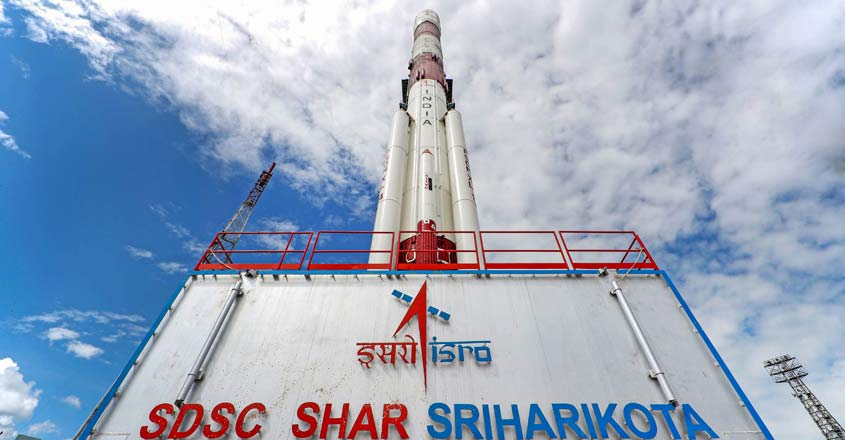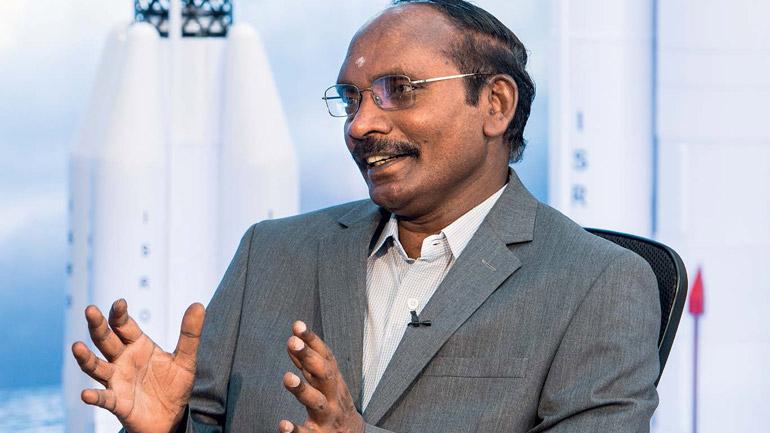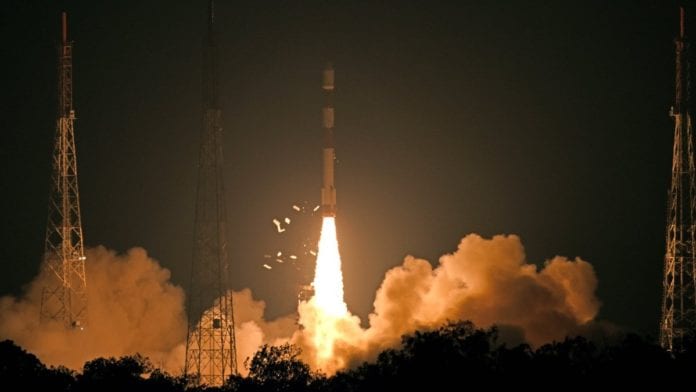ISRO successfully launched its first earth observation satellite EOS-01 and nine other customer satellites, onboard its polar rocket from the spaceport at Sriharikota near Nellore on Saturday. The Polar Satellite Launch Vehicle (PSLV-C49) was lifted off at 3:12 PM at the end of a 26-hour countdown. 20 minutes later, it injected the satellites into the orbit one after another.
Heavy downpour and lightning at the Sriharikota Range (SHAR) minutes before the launch led to some concerns at the mission control in the Satish Dhawan Space Centre (SDSC).

After some deliberations, the scientists led by Dr K. Sivan, Indian Space Research Organisation (ISRO) Chairman and senior scientists S. Somanath and P. Kunhikrishnan decided to postpone the launch. ISRO said that the liftoff was scheduled at 3:02 PM, but got delayed by 10 minutes due to debris on the path of the vehicle.
Details of the satellites
The 9 customer satellites are from Lithuania (1), USA (4) and Luxembourg (4). The international satellites were launched under a commercial agreement with NewSpace India Limited (NSIL), department of space.
The two solar arrays of EOS-01 were deployed automatically after separation, and the ISRO Telemetry Tracking and Command Network at Bengaluru took control of the satellite. Over the next days, the satellite will be brought to its final operational configuration.
The space agency said that EOS-01, (earlier known as RISAT-2BR2) is intended for applications in various fields such as forestry, agriculture, disaster management support among many others.
R2, the Lithuania satellite is a technology demonstrator. The Luxembourg satellites, Kleos (KSM-1A/1B/1C/1D), are intended for maritime applications. The USA satellites, Lemur (Lemur-1/2/3/4) are designed for multi-mission remote sensing.
PSLV-DL variant, which has two strap-on boosters with 12 tonnes of propellant, was used by ISRO for the mission. The PSLV-DL variant was first used on January 24th, 2019 to launch a Microsat-R satellite.
ISRO and COVID-19

Dr Sivan heartily congratulated the team for the successful launch of the satellites, even amidst the COVID-19 restrictions. He said, “PSLV-C49 successfully placed all ten satellites precisely into their 575-km orbit.” This is the first space mission by the Indian Space Research Organisation in 2020. The success of this mission came as a big relief to the team who had planned to launch at least 10 missions this year but was affected by the pandemic.
It took ISRO almost three months for the launch of this mission due to COVID-19 regulations, as they had to function with limited people. In wake of the same, ISRO closed the rocket launch viewing gallery for the public. Media was not allowed to witness the launch either. Moreover, former chairmen of the Indian Space Research Organisation (ISRO) and directors of various ISRO units were not invited to view the launch.
“This mission is very special and unusual for ISRO. The space activity cannot be done from ‘work from home’. Each engineer has to be present at the lab. When talking about missions like these, each technician, employee has to work together,” Sivan said.
This was the 51st launch of the PSLV, 38th launch from the first launch pad at SHAR and the 76th launch vehicle mission from the SDSC.
Further Reading:


